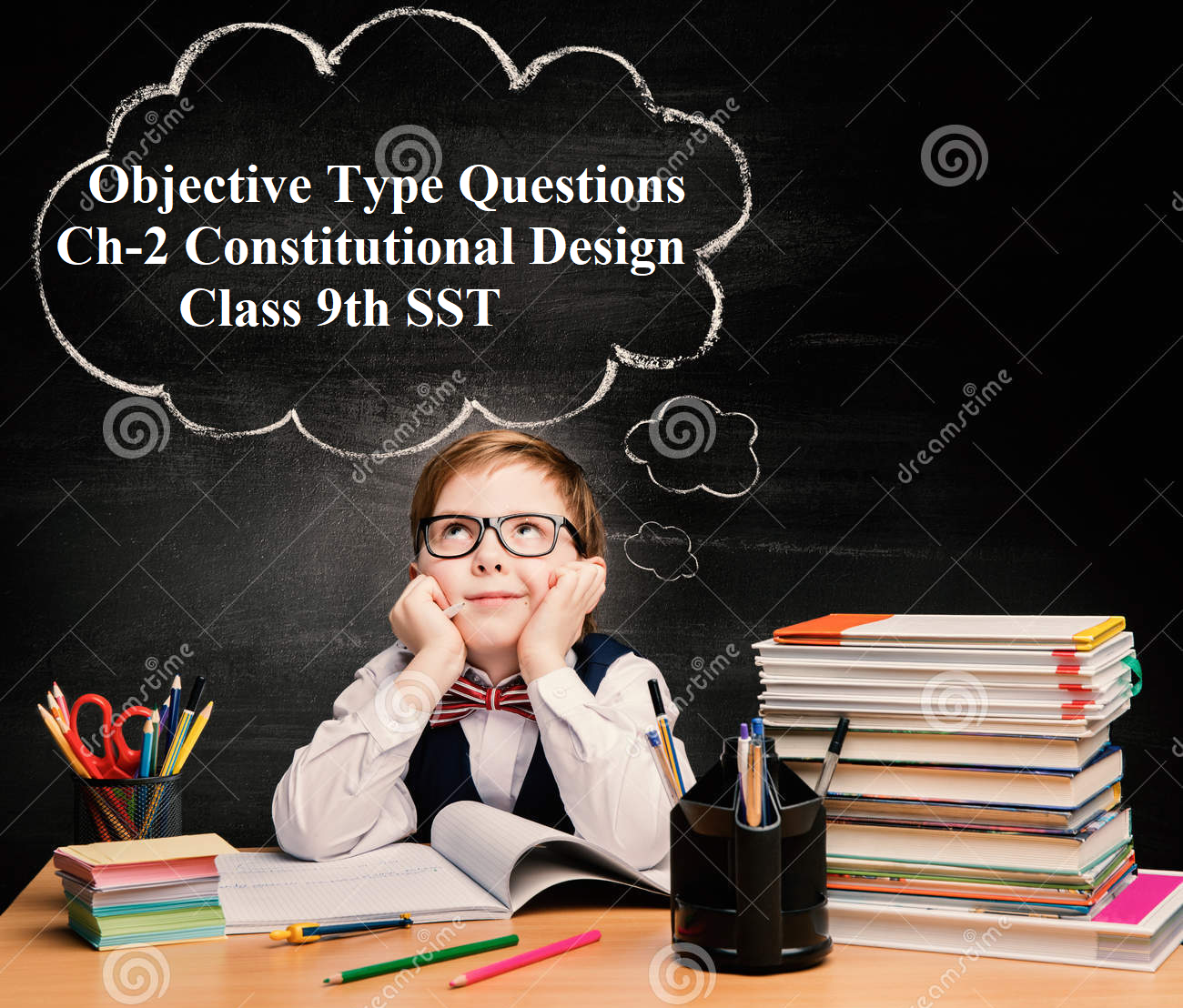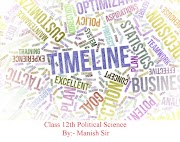1. Why did the white regime decide to change its policies?
a) Increase in protests and struggles
b) Government realised that repression was becoming difficult
c) Rise of sympathetic attitude in government for the blacks
d) Both (a) and (b)
Answer: (d) Both (a) and (b)
2. When did South Africa become a democratic country?
a) 26 April, 1995
b) 26 April, 1994
c) 24 March, 1994
d) 27 April, 1996
Answer: (b) 26 April, 1994
3. Name the autobiography of Nelson Mandela.
a) The Long Walk to Freedom
b) South Africa Wins Freedom
c) Walk to Freedom
d) Our Freedom
Answer: (a) The Long Walk to Freedom
4. What did the white minority want from the new Constitution?
a) Protect its privileges and property
b) A separate country for themselves
c) Reservation in legislature
d) some special rights
Answer: (a) Protect its privileges and property
5. Which of the following sentences is correct?
a) All countries that have constitutions are necessarily democratic
b) All countries that are democratic necessarily have constitutions
c) Both (a) and (b)
d) None of the above)
Answer: (b) All countries that are democratic necessarily have constitutions
6. Where was the 1931 session of Indian National Congress held?
a) Nagpur
b) Karachi
c) Calcutta
d) Delhi
Answer: (b) Karachi
7. According to which Act were the elections held to provincial legislatures in India in 1937?
a) Government of India Act, 1935
b) Government of India Act, 1919
c) Government of India Act, 1909
d) None of the above
Answer: (a) Government of India Act, 1935
8. Which revolution in the world inspired the Indians to set up a socialist economy?
a) French Revolution
b) Turkish Revolution
c) Russian Revolution
d) American War of Independence
Answer: (c) Russian Revolution
9. When did the Assembly adopt the Constitution?
a) 26 November, 1949
b) 26 December, 1949
c) 26 January, 1950
d) 26 January, 1949
Answer: (a) 26 November, 1949
10. How many amendments were considered before adopting the Constitution?
a) Around 500
b) Around 2000
c) Around 1550
d) Around 1000
Answer: (b) Around 2000
11. Who among these leaders was a bitter critic of Mahatma Gandhi?
a) Maulana Abul Kalam Azad
b) Sarojini Naidu
c) Dr. B.R. Ambedkar
d) Dr. Rajendra Prasad
Answer: (c) Dr. B.R. Ambedkar
12. The Constitution begins with a short statement of its basic values. What is it called?
a) Preface
b) Preamble
c) Introduction
d) Article
Answer: (b) Preamble
13. Which of these countries is/are examples of a Republic?
a) USA
b) India
c) South Africa
d) All the above
Answer: (d) All the above
14. Which of these positions is correct in relation to the ‘Sovereign’ status of India?
a) USA can decide India’s foreign policy
b) USSR can support the CPI (M) in setting up its government here
c) The Indian government only can decide its internal and external policies
d) Pakistan can control India’s Armed Forces
Answer: (c) The Indian government only can decide its internal and external policies
15. Which of the following days is celebrated to mark the enforcement of the constitution?
a) Republic Day
b) Independence Day
c) Gandhi Jayanti
d) Constitution Enforcement Day
Answer: (a) Republic Day
16. The Constituent Assembly met for how many days?
a) 114
b) 280
c) 365
d) 150
Answer: (a) 114
17. When did the Indian constitution come into force?
a) 26th Nov, 1949
b) 15th August, 1947
c) 26th Jan, 1950
d) 26th Jan, 1930
Answer: (c) 26th Jan, 1950
18. When was the Constitution of India adopted?
a) 26th Nov, 1949
b) 26th Jan, 1949
c) 26th Jan, 1950
d) 26th Nov, 1950
Answer: (a) 26th Nov, 1949
19. The Constituent Assembly adopted the Constitution of India on
a) 26 January 1950
b) 26 November 1949
c) 26 January 1949
d) 15 August 1947
Answer: (b) 26 November 1949
20. Which of the following sentences is wrong about Dr B.R. Ambedkar?
a) He was the Chairman of the Drafting Committee.
b) He was born in Maharashtra.
c) He was law minister in post-independence India.
d) He was the founder of the Republican Party of India.
Answer: (b) He was born in Maharashtra.
21. Who among the following was not the member of the Constituent Assembly?
a) Mahatma Gandhi
b) Rajendra Prasad
c) T.T. Krishnamachari
d) Pt. Jawaharlal Nehru
Answer: (a) Mahatma Gandhi
22. Nelson Mandela remained in the jail for
a) (a) 28 years
b) (b) 29 years
c) (c) 30 years
d) (d) 31 years
Answer: (a) 28 years
23. Apartheid in South Africa was discrimination on the basis of
a) gender
b) religion
c) race
d) economic status
Answer: (c) race
24. How many members had the Constituent Assembly that wrote the Indian Constitution?
a) 200
b) 199
c) 198
d) 190
Answer: (b) 199
25. Which of the following terms is not included in the Preamble to the Indian Constitution?
a) Liberty
b) Equality
c) Secular
d) Religion
Answer: (d) Religion
26. The Indian Constitution came into effect on
a) 26 January 1949
b) 26 January 1950
c) 26 January 1952
d) 26 November 1950
Answer: (b) 26 January 1950
27. On what charges was Nelson Mandela sentenced to life imprisonment?
a) For treason
b) For breaking the laws
c) For corruption charges
d) for possessing illegal property
Answer: (a) For treason
28. In which way did the system of apartheid discriminate among the South Africans?
a) Restricted social contacts between the races
b) Segregation of public facilities
c) Created race-specific job categories
d) All the above
Answer: (d) All the above



























4 Comments
NCERT Solutions for Class 10 Science Life Process explains it in detail. It also helps students to learn about nutrition, growth, metabolism and repair. In the nutritional stages, there are ingestion, digestion, absorption, transport, assimilation, and excretion Etc.
ReplyDeleteWondering how to prepare for class 10 science exam? Practice the science questions by using the NCERT Solutions Class 10 Science PDF for free. It is prepared by the subject experts keeping in mind the syllabus of CBSE 10.
ReplyDeleteCBSE has released the Class 12 Term 2 Sample Paper . Sample Question Papers are the most important resource that every single student should have in their Class 12 Term 2 Study Material.
ReplyDeleteI'm glad you shared this helpful post. Thanks for highlighting it. Feel free to contact us if you have a problem studying chemistry. We will give you the best solution possible.Best Online Classes for Chemistry
ReplyDelete